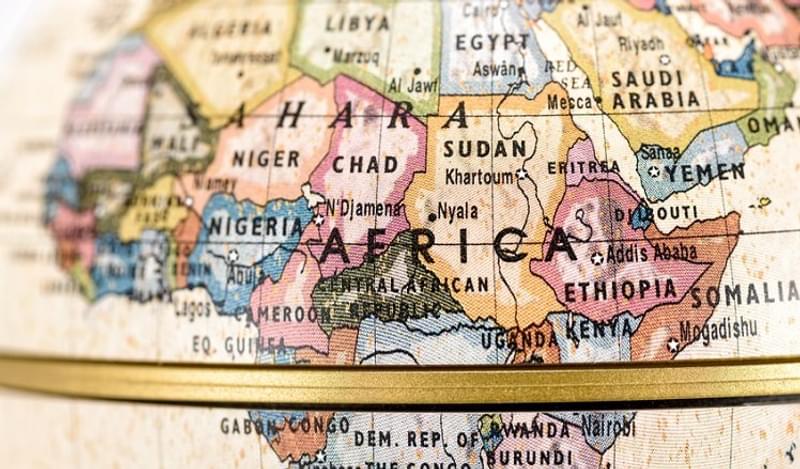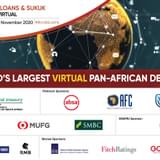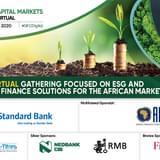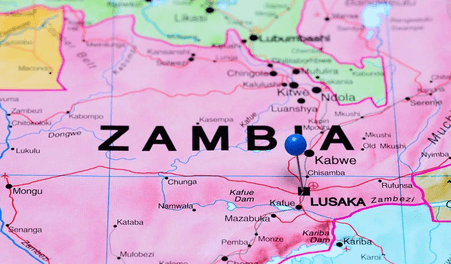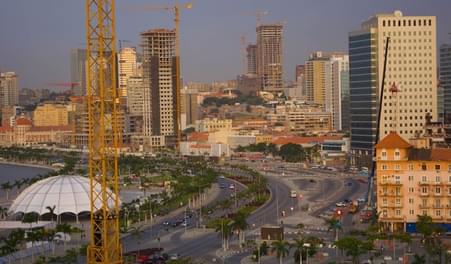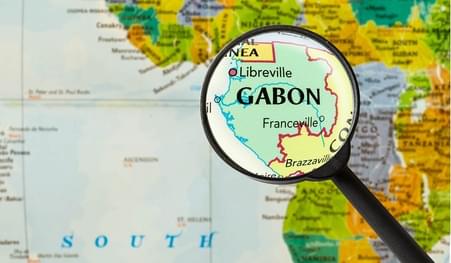These days, Nigeria is more often associated with negative than positive headlines, borne largely of ill-conceived and inconsistent policies adopted by the country’s Central Bank. As it is often in delicate and uncertain times that great opportunities arise, the two recent Eurobond issuances out of Nigeria – IHS, a debut issuer, and Access Bank, a repeat issuer – are all the more salient, and possibly indicative of what to expect from other corporate credits in the country.
IHS Makes Smart Play
IHS is a telecoms tower operator, which has a dominant market share in terms of towers in Nigeria with a total of 15,389. The group is also the dominant player in Cameroon, Cote D’Ivoire, Zambia and Rwanda, pushing the total towers the group owns to 22,961. The company’s market share in Nigeria is approximately 71%.
The company issued US$800mn of senior unsecured Eurobonds maturing in 2021 with a coupon of 9.5%. The provisional rating from S&P and Fitch is B+, bearing in mind that the issue is just one part of the Nigerian operation. Compare that with the Nigerian 2021 sovereign Eurobond, which is rated by S&P one notch lower at B, and at the time of writing was trading at around the 6.75% level.
The IHS Eurobond also incorporates the tender of US$250mn Helios Tower Eurobonds, a company that was acquired by IHS on the 13 June this year. The total issuance of the new US$800mn allowed IHS to consolidate the Helios Tower debts.
Looking a bit deeper, the move represents an interesting infrastructure play. The company has long term contracts with its clients with an average life remaining of 7.6 years. MTN, Etisalat and Airtel represent 90% of the company’s revenue by customers. This allows for good cash flow visibility. The company stated during the roadshow that the over US$1.9bn of contracted revenue is in place. Furthermore, the company has strong backing from its equity investors, which include various development agencies as well as even core clients such as MTN.
IHS’ management has put in place an annual price escalator as 78% of its contracted revenues are USD linked, thus diminishing the impact of adverse FX movements. The management further stated that they are in the process of migrating the contracts to a quarterly FX reset, as opposed to annually, which will in turn further diminish any potential impact by a further devaluation of the NGN versus the USD.
Consider a few key figures for the company’s Nigeria standalone operation: top line revenue stood at US$388mn, while EBITDA Margin for H1 2016 stood at 52% or US$203mn, Gross Debt/EBITDA was at 4.2x for the same period and EBITDA/Interest Expense at 2.9x.
It is important to mention that the environment in, and fundamentals of, Nigeria underpin this among any other Eurobond issuances coming out of the country. By now many will have been well acquainted with the country’s foreign exchange challenges, the scarcity of US dollars in the market, difficulties in money repatriation, and persistent policy volatility. But, while Nigeria continues to see economic challenges ahead, the number of mobile phone subscribers will continue to rise substantially over the years to come, up to a total of 62 million new mobile phone subscribers by 2020.
Access Bank Issuance Underscores Policy Shortcoming
On the 13th of October, Access Bank of Nigeria concluded its exchange offer and new Eurobond issuance. This makes Access Bank the first Nigerian bank to issue new dollar bonds this year.
Holders of the 7.5% coupon 2017 senior unsecured Eurobond could give back their bonds at a price of 102.00 and in exchange receive the newly issued 10.5% 2021 senior unsecured notes priced at 99.052.
A few interesting aspects associated with the exchange are worth dwelling on further. Officially, the exchange rate for the 2017 Access Eurobonds had been announced on 3 October. The announcement indicated that the new 2021s would be issued at a minimum yield of 9% with a deadline to accept the exchange offer expiring at 4pm on 11 October. Subsequently, on 12 October, the deadline was pushed back to 3pm – in other words, a one-day extension was applied.
The initial pricing indication was finally made public on 13 October, indicating a high 10% for the new 2021s. In the end only US$300mn of the new 2021 senior unsecured notes were issued at a yield of 10.75%. Nevertheless, the exchange of the 2017 Access Eurobonds using the indicative results only attracted US$112.9mn of a total of US$350mn issued.
So why the low uptake, and why the high yield on the issuance? If one does not know the pricing indication and is just being offered a minimum yield, why would one exchange? It would have made much more sense to set a specific range. One the other hand, maybe there has also been an under appreciation of the amount of Access 2017 Eurobonds being held by Nigerian and other Sub-Saharan African financial institutions. It is common among local institutions to have so called “Hold to Maturity Books” (HMB), where bonds are purchased and are held to their maturity. The bonds that are held on HMB are not traded and not exchanged, they stay on the books until they mature and get repaid. Essentially, a large part of the 2017 Access Eurobonds would never have been exchanged in the first place.
As for the second part of the question: why such a high yield for a high quality Tier 1 bank in Nigeria?
This is where both IHS and Access Bank come together. While the impact has and is affecting both corporates in different ways, it is what I would call a sovereign discount. How significant is this discount? That of course depends on investors’ own pricing views of these bonds; in the view of this author, it seems to be around 1-2% yield in US dollar terms for a 5-year bond.
The inaptitude of policy implementations is appearing at the forefront here. For IHS, it has manifested itself through the questions raised by investors regarding FX availability to service its debt. For Access bank, the issue is about the US dollar shortage the bank may or may not have, as well as how to access the US dollars needed when the FX market is on a good trading day (which in Nigeria implies volumes of around US$40mn on a good day and around US$5mn on a bad day). While the main Tier 1 banks are perceived to be in better shape to face the current economic storm brewing in the Nigeria, it seems we may see yet another round of NGN pressure and devaluations prior to any FX market stabilisation there.
This article should not be considered investment advice and is solely for information purposes only. The views contained within this article represent the opinions of the author.
